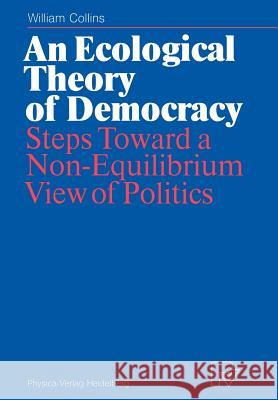An Ecological Theory of Democracy: Steps Toward a Non-Equilibrium View of Politics » książka
An Ecological Theory of Democracy: Steps Toward a Non-Equilibrium View of Politics
ISBN-13: 9783642484117 / Angielski / Miękka / 2012 / 260 str.
The subject of this monograph is to describe how different types of democracies might be expected to change through the course of time. There are three settings; the two party case, the multiple party case, and the constrained multiple party case. The most important feature of the work is its use of structurally unstable dynamical systems to model the evolution of different democratic policies. Methods are also introduced to deal with the nonequilibrium aspects of democratic practice. The fundamental argument presented by the book is that democracy is not and cannot be an equilibrium type of process. Democratic political systems have generally been modeled to reflect an equilibrium as the expected outcome. The purpose of this book is to argue that democracy is basically a nonequilibrium process. To this end, an ideal 2 party and -N- party and constrained -N- party democracy are modeled with mathematical systems which are structurally unstable. The results of these analyses are evaluated in light of democratic political theory.











